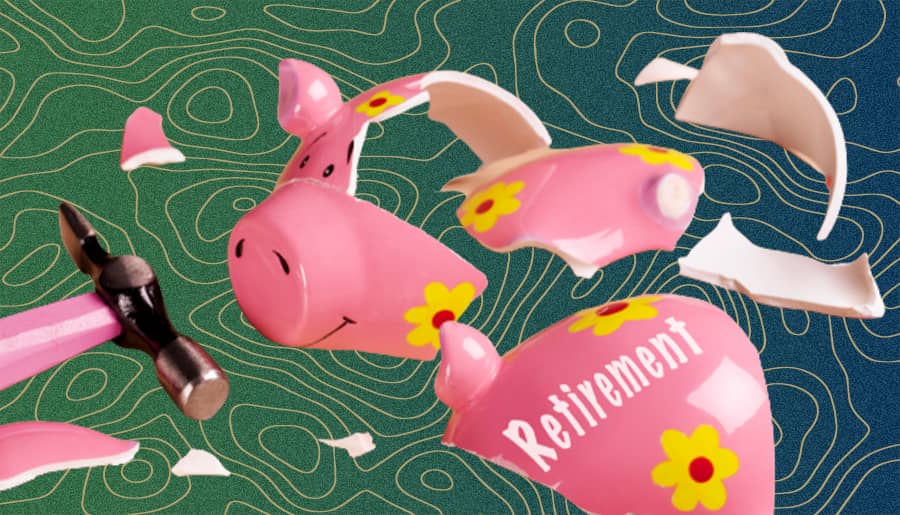If you regularly monitor your superannuation fund, you might’ve noticed it going down this year and, well, freaked out. It’s your retirement money and, if you or your employer are consistently adding to it, why would it be going down?
“For many people, a significant portion of their super is invested in the share market,” explains Natasha Janssens, a finance expert and founder of Women With Cents. “As a result of recent interest rate rises, many investors have begun selling their shares in anticipation of future rate rises leading to further falls in share prices. As a result, share prices have begun to fall, resulting in a drop in the value of your super.”
It makes sense. But does that mean we should do something about it? Is there a way to stop it from continuing to dip? Depends on your age, says Janssens.
“If you are approaching retirement — you’re 55 or older — it’s worthwhile seeing a financial planner to better understand how your super is invested, and how this can impact your retirement plans,” she says.
“Otherwise, if retirement is still a fair way away for you — 10 years or more — then there is nothing you need to do. When it comes to investments, time is your biggest ally, so if you have the time to afford to ride out the storm, then it’s best you leave your super alone.”
While that’s the nutshell of it, ahead, Janssens breaks down what to do about your super dropping even further.
Make the Most of the Market Dip
As mentioned, your super is likely being invested in the share market. Your super fund might be managing it, or you might be doing it yourself — in which case, you might want to take advantage of this time.
“A drop in share prices offers an opportunity to purchase more shares at a lower price, thereby reducing the negative impact of the drop in share prices that you may have purchased previously at a higher price,” says Janssens.
She adds that it’s important to remember that most of what happens in a share market has very little to do with how the actual businesses are performing, and is primarily driven by investor emotions – what investors think will happen to share prices in the near future.
“This means that the best way to make the most of your investment opportunities is to do the opposite of the crowd — buy or hold when everything is selling, and sell when everyone else is buying.”
Don’t Panic
So, if you’re under 55, you now know you shouldn’t be doing anything to your super – other than make the most of the market dip, as outlined above. But, with this market dip, should you now be looking to generally change your investment strategy?
“Providing that you aren’t approaching retirement age, it is typically not recommended to change your investment strategy at this point in time, for two reasons: 1) you will lock in the loss in value and 2) you will miss out on the market rebound and opportunity to purchase additional investments at a lower price,” explains Janssens.
“I have seen this happen during the GFC with people who panicked and moved their super to cash. As time went on the news headlines receded and they forgot about their super, including about switching their investment strategy. The result was years of significant lost income and growth.”
Safeguard Your Funds for the Future
Final words on safeguarding your funds for future? Janssens says the most effective ways to do so are to make sure your funds are well diversified, that you are minimising your fees where possible and that you are making regular contributions into your fund.
Read more stories from The Latch and subscribe to our email newsletter.







